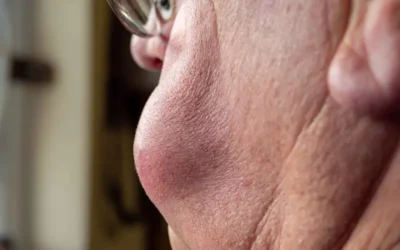Bacterial gastroenteritis is a diagnosis that medical billing outsourcing companies frequently see. Gastroenteritis causes the stomach and intestines to become irritated and inflamed. While many gastrointestinal infections are caused by viruses, bacterial infections or “food poisoning” is very common.
It is estimated that an estimated 1 in 6 people in the U.S. contract foodborne illness each year. According to the US Centre for Disease Control and Prevention (CDC) there were more than 11,000 foodborne infections in the year 2013. Food contamination is caused by viruses, bacteria, toxins, parasites, metals, and other chemicals. The symptoms of the foodborne illness due to chemical contamination range from mild gastroenteritis to critical cases of hepatic, renal, and neurological diseases.
Causes, Symptoms and Diagnosis
The causes of bacterial gastroenteritis, which can range from mild to severe, are: poor hygiene, close contact with animals, or consuming food or water contaminated with bacteria, or the toxic substances produced by the bacteria. Symptoms include loss of appetite, vomiting, severe abdominal pain and cramps, blood in the stools, diarrhea, and fever. Bacterial gastroenteritis outbreaks can happen when many people eat the same contaminated food served in a picnic, school cafeteria, social gathering, or restaurant. Those who travel a lot or live in crowded areas are also at risk. Bacterial gastroenteritis is infectious and spread by people who carry the bacteria on their hands.
The bacteria responsible for causing gastroenteritis include yersinia, found in pork; staphylococcus, found in dairy products, meat, and eggs; shigella, found in water (such as swimming pools); salmonella, found in meat, dairy products, and eggs; campylobacter, found in meat and poultry, and E. coli, found in ground beef and salads.
Diagnosis is based on clinical symptoms and may include assessment of the following:
- Stool pH
- Presence of reducing substances in stool
- Fecal leukocytes
- Antilisteriolysin O (ALLO)
- Identification of pseudomembranes in the colon by direct visualization (diagnostic for C difficile)
- Stool culture
Foodborne Illnesses — ICD-10 Codes
- Bacterial gastroenteritis
The following ICD-10 codes are used to report diagnosis of bacterial gastroenteritis or food poisoning: Cholera- A00 – Cholera
- A00.0 (cholera due to Vibrio cholera 01, biovar cholera)
- A00.1 (cholera due to Vibrio cholera 01, biovar eltor)
- A00.9 (cholera, unspecified)
Salmonella gastroenteritis (Non-typhoidal)
- A02.0 (Salmonella enteritis)
Shigellosis
- A03 (Shigellosis)
- A03.0 (Shigellosis due to Shigella dysenteriae)
- A03.1 (Shigellosis due to Shigella flexneri)
- A03.2 (Shigellosis due to Shigella boydii)
- A03.3 (Shigellosis due to Shigella sonnei)
- A03.8 (other Shigellosis)
- A03.9 (Shigellosis, unspecified)
Other bacterial intestinal infections — includes Escherichia coli (E.coli)
- A04 (other bacterial intestinal infections)
- A04.0 (enteropathogenic Escherichia coli infection)
- A04.1 (enterotoxigenic Escherichia coli infection)
- A04.2 (enterovasive Escherichia coli infection)
- A04.3 (enterohemorrhagic Escherichia coli infection)
- A04.4 (other intestinal Escherichia coli infections)
- A05.5 (campylobacter enteritis)
- A04.6 (enteritis due to Yersinia enterocolitica)
- A04.7 (enterocolitis due to Clostridiumdifficile)
- A04.8 (other specified bacterial intestinal infections)
- A04.9 (bacterial intestinal infection, unspecified)
- Other bacterial foodborne intoxication and infectionFoodborne intoxication is caused by toxins in food resulting from bacteria or other organisms that are growing on food. Foodborne intoxication can also be caused by heavy metals, chemicals or other substances that have become concentrated in food. Chemical contaminants in food originate from the soil, environment, disinfection by-products, personal care products, air, water, and packaging material.Category A05, Other bacterial foodborne intoxications, not elsewhere classified, contains codes for the more common bacteria that produce toxins that cause the infections.
- A05 (other bacterial foodborne intoxications, not elsewhere classified)
- A05.0 (foodborne staphylococcal intoxication)
- A05.1 (botulism food poisoning)
- A05.2 (foodborne Clostridium perfringens [Clostridium welchii]) intoxication
- A05.3 (foodborne Vibrio parahaemolyticus intoxication)
- A05.4 (foodborne Bacillus cereus intoxication)
- A05.5 (foodborne Vibrio vulnificus intoxication)
- A05.8 (other specific bacterial foodborne intoxications)
- A05.9 (bacterial foodborne intoxication, unspecified)
- Foodborne intestinal infections caused by parasites Foodborne intestinal infections can also be caused by parasites. The relevant ICD-10 for Amebiasis and Other Protozoal Intestinal Diseases are found in the category A06-A07.A06 Amebiasis includes infection due to Entamoeba histolytica; Type 1 excludes other protozoal intestinal diseases
- A06.0 Acute amebic dysentery
- A06.1 Chronic intestinal amebiasis
- A06.2 Amebic non dysenteric colitis
- A06.3 Ameboma of intestine
- A06.4 Amebic liver abscess
- A06.5 Amebic lung abscess
- A06.6 Amebic brain abscess
- A06.7 Cutaneous amebiasis
- A06.8 Amebic infection of other sites
- A06.9 Amebiasis, unspecified
A07 Other Protozoal Intestinal Diseases
- A07.0 Balantidiasis
- A07.1 Giardiaisis (lambliasis)
- A07.2 Cryptosporidiosis
- A07.3 Isosposiasis
- A07.4 Cyclosporiasis
- A07.8 Other specified protozoal intestinal diseases
- A07.9 Protozoal intestinal disease, unspecified
A08 Viral and other specified intestinal infections
Category A08, Viral and other specified intestinal infections contains codes for viral enteritis and gastroenteropathies:- A08.0 Roraviral enteritis
- A08.1 Acute gastroenteropathy due to Norwalk agent and other small round viruses
- A08.11 acute gastroenteropathy due to Norwalk agent
Acute gastroenteropathy due to Norovirus
Acute gastroenteropathy due to Norwalk-like agent - A08.19 Acute enteropathy due to other small round viruses
- A08.2 Adenoviral enteritis
- A08.3 Other viral enteritis
- A08.31 Calicivirus enteritis
- A08.32 Astrovirus enteritis
- A08.39 Other viral enteritis
- A08.4 Viral intestinal infection, unspecified
- A08.8 Other specified intestinal infections
Medical coding outsourcing can ensure accurate ICD-10 code assignment for gastroenterology practices. Partnering with an experienced medical coding company is the key to efficient, consistent and compliant coding for appropriate reimbursement.



